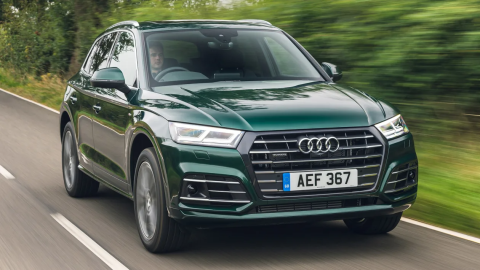Volkswagen mulling plan to launch at least one PHEV in United States
German motor vehicle manufacturer Volkswagen (VW) has confirmed that it is seriously mulling a plan to launch at least one plug-in hybrid electric vehicle (PHEV) in the United States. Pablo Di Si, Chief Executive Officer (CEO) of Volkswagen Group of America, revealed in a recent that he sees a possibility of adding at least one PHEV to its U.S. lineup in the near future. He stressed that the German car brand already has the plug-in hybrid technology.
The top executive explained that developing a technology takes a long time. If the group wouldn’t have any PHEV, the group wouldn’t bother about it. However, it's a great possibility because of its Audi brand. He further explained that it mightn’t make sense at this point for the group to go in reverse and develop new powertrain technology that it's likely to phase out in the coming years, but it does makes sense for it to use an already developed technology.
CEO Di Si was specifically talking about the Audi Q5 PHEV, which is being produced in Mexico. The seasoned executive claimed that he himself has driven PHEVs, and they all work well.
He went on to state that making use of the technology from the Q5 PHEV to add another VW-branded PHEV to the group’s U.S. lineup would be a perfect transition.
Speaking about the PHEV plans, Di Si said, "Until Electrify America doubles up [its U.S. charging network] in 2025, I think it's a perfect transition. And we have the technology. It's a great vehicle. And I've heard from a lot of customers over the last six months expressing interest in a VW brand plug-in hybrid.”
The Q5 55 TFSI PHEV is a two-row midsize SUV that comes equipped with a 17.9-kWh battery pack capable of covering an estimated distance of up to 23 miles on pure electric power. It also has a four-cylinder engine with a single e-motor that produces a combined 362 horsepower.
Volkswagen Group of America has plans to gradually move away from internal combustion engines (ICEs) to electric powertrains to reduce its carbon footprints. It aims to produce and sell only fully electric models (BEVs) by the mid-2030s.
